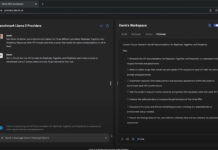Editors Note: This is a guest post by Steve Klinsky, Founder at Modern States Education Alliance. This article was published on Real Clear Politics.com on November 18, 2016. Modern States uses the edX technology and pedagogy for its courses.
As President-elect Trump reviews policy ideas to help poor and working class citizens and to “make America great again”, there is one education idea that is both exceptionally simple to implement and exceptionally valuable.
Namely, create a national digital public library of online college courses, available to everyone on a tuition free basis. These courses — from top quality professors, with free online textbooks and credit-granting certifying exams — would make college free or much more affordable, at very little taxpayer cost and in an easily achievable way.
Online college courses are nothing new. Millions of students have now taken college courses entirely online for the past twenty years, for full academic credit, and from all types of colleges and trade schools. The problem, however, is that — due to the regulatory and “pricing power” structure of accredited post-secondary education — the tuition cost for these online courses has been set every bit as high (or sometimes higher!) than for the same course delivered in the physical classroom.
There was an important breakthrough several years ago, when the nation’s most prestigious universities (Stanford, MIT, et.al.) started to offer some of their own best courses online, entirely tuition free as a public service. These courses are known as MOOCs (or “Massively Open Online Courses”) and have also been widely popular. The very first one, for example, was a computer science course from Stanford that attracted 160,000 students worldwide as compared to the 35 or so students in a normal physical class.
The key problem with the MOOCs is that they do not lead to college credit. The student can earn a letter of congratulations, but has not been able to earn a recognized course credit that will help him finish a traditional college more quickly, or qualify for college graduation and entry to graduate school. Understandably, the prestigious schools that offer MOOCs have sought to share knowledge, but do not want to dilute their traditional brand with tens of thousands of free students, and do not want to ruin their tuition-based economic model.
As a private citizen and philanthropist, I have personally been trying to “square the circle” by creating a new charity called the Modern States Education Alliance “Freshman Year for Free” (Modernstates.org), which will offer free online courses that can lead to credit.
Modern States has now given funds to EdX (the online joint venture of Harvard and MIT) and other course developers to produce a top quality, tuition free online course for every one of the major traditional freshman college subjects. There will be about thirty six courses in all, available to anyone who goes to the Modern States website, in fields such as chemistry, calculus, microeconomics, and so on.
Each course is taught by a professor from a highly respected university, using state of the art online education technology. Textbooks and readings are provided online for free as well, along with quizzes, simulations and other aides.
Very importantly, each course is designed to prepare the student for one of the Advanced Placement or CLEP exams (“College Level Examination Placement” exams) that already are offered by the College Board. Over 2,000 traditional colleges and universities award full traditional course credit to students who have passed these College Board AP and CLEP exams and then enroll in their school.
For example, a student who passes the microeconomics CLEP exam and then enters Purdue, would begin with time and attendance credit for the microeconomics course just as if the student had transferred in from a community college with the same course. A student could potentially take eight courses online for free on the Modern States site, pass eight College Board AP or CLEP exams in those subjects, and then enroll in Purdue (which already recognizes the College Board exams) as a sophomore, with just three years of time and credit left to earn.
The College Board — with which Modern States has no financial connection — typically charges around $80 for a CLEP exam, and Modern States is now paying even this expense for our initial students. However, everything else is free. Even one such tuition free online course can save a student thousands of dollars, plus time. A full year’s worth of courses can save tens of thousands of dollars per student, and can create a practical “on ramp” into traditional universities for a whole generation of new Abe Lincolns who might otherwise feel shut out of traditional college systems for financial reasons.
Modern States “Freshman Year for Free” is in pilot phase now, with about nine courses done and many more to come. The first ever student to take a free Modern States course and pass a CLEP — a home schooler from Oregon, studying chemistry — accomplished this just two weeks ago.
The entire Modern States program will be up and running in full soon, and courses are not very expensive to develop; only about $50,000-$100,000 each. The entire Modern States website with 36 courses and texts is budgeted to be created for just $2 or $3 million of funding all in, all provided privately.
The Trump administration, or others in government, could adopt this straight forward Modern States idea and make it even much more powerful by creating additional and better courses, with additional credit-granting certification tests.
At a cost of millions — not billions — there could be a national public library of digital online courses, in a full range of subjects, available tuition free with free text books, to anyone, anywhere. Along with the 36 courses where the College Board AP and CLEP exams already exist, there could be more courses and more certification exams.
The courses could be used for self-study, or used as another teaching and curriculum tool by existing high schools, colleges and physical discussion groups where a teacher is present. They could be used by people of any age and any geography.
The same idea could be applied to vocational and job training. For example, instead of using federal Title IV funds to send students to a very expensive trade school to learn to fix computers, a fraction of those education dollars could be used to pay an employer to hire and train a worker. The employer could use free online courses in computer repair from the national online library, plus on-the-job help. A payment might even be made to the “employer as educator” when the student passes the strict certification exam.
It would be important for the online education library to work with top quality exam creators, like the College Board, to make sure that the certification exams reflect high and respected standard for passing. (Think, for example, of the respect now paid to the Bar exam for lawyers or the CPA exam for accountants).
Too much federal government control over curriculum could be avoided by funding independent groups to develop the courses or by funding multiple versions of each course. However, just as the existence of a traditional (government funded) library does not prevent book stores or free speech, a government funded online educational library would not stop other colleges or educational diversity, and would be only one of many ways for students to achieve an education.
Our existing college accreditation system is over 100 years old and began before online education was invented. The existing system gives all power to the institution to grant the credit, just as if a local symphony hall could require music lovers to attend the local town orchestra to hear Mozart, even though Mozart is now also available from the world’s greatest orchestras for free over the radio or the Internet.
Four years of physical residency at a great university like Stanford remains the gold standard for college education, and is better than free courses online. However, millions of students are already taking courses entirely online for credit, often from mediocre institutions at very high tuition expense. A national public library of great tuition free online courses, plus credit-bearing certification exams for these courses, could quickly create one practical path toward affordable and accessible education for all.
——
Steven Klinsky, a businessman and education reformer, is founder of the Modern States Education Alliance and chairman of Harvard’s Public Education Policy Group.






















